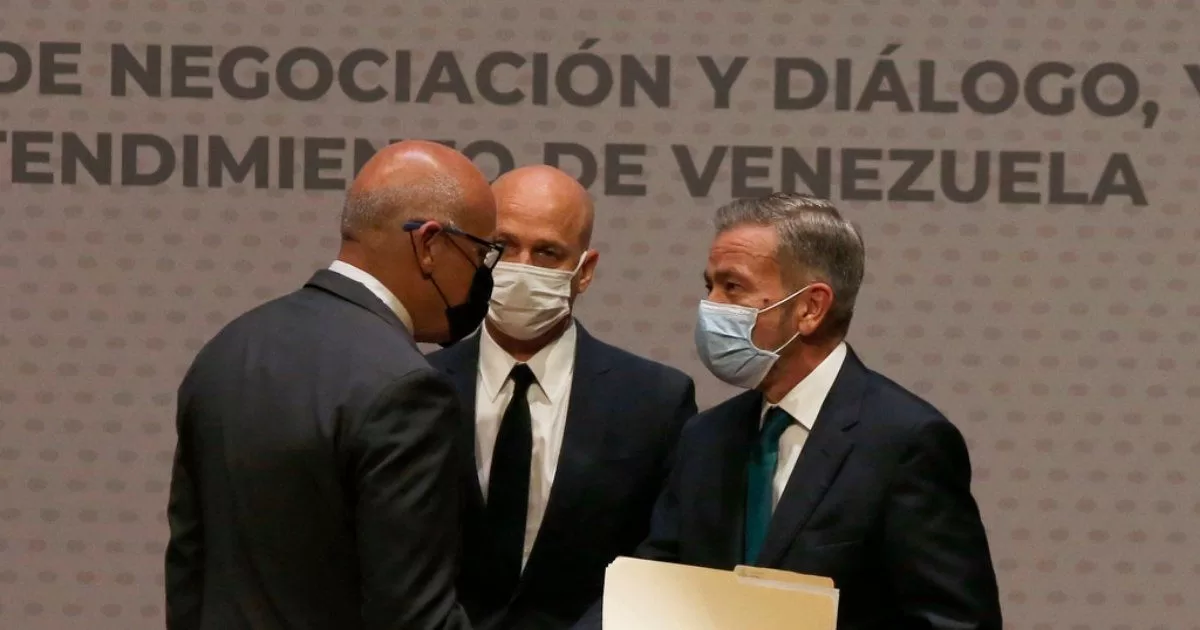A condition that worsens after the official order of the cessation of the Office of the UN High Commissioner for Human Rights in the country.
In the midst of an “asymmetric” agreement between the parties, which results in non-compliance with only one of them, the Maduro regime not only ratified the disqualification of the opposition presidential candidate Maria Corina Machado and the former candidate Henrique Capriles, on the 26th last January, but also ordered the “arbitrary” arrest, from the lawyer Rocío San Miguel, a specialist in military issues, and from more civilians and soldiers, on February 15, for an alleged conspiracy announced in January.
And this February 15, he announced the expulsion of personnel from the UN Office that offers assistance and support in matters of human rights.
In light of the facts, which have national and international rejection, it is necessary to specify the current status of the Barbados Agreement signed on October 18, 2023, which has formally ended, according to analyst Luis Salamanca, professor and specialist in political systems. in Latin America.
“The US does not officially declare it extinct, but it is what is missing. Due to the facts, the mandatory Agreement between the parties would be in a situation of extinction, it is virtually in a failed state; the parties are dropping it,” he said.
The Barbados Agreement is the eighth negotiation attempt, in 10 years of the Venezuelan regime, that Maduro’s representation would be obliged to comply with but which crashes into failure when it comes to establishing conditions for democratic elections in Venezuela, which would mean the departure of power.
Barbados Agreement, asymmetric and precarious start
Despite the efforts of the Venezuelan opposition delegation, the Barbados Agreement stopped being observed very soon by the parties that began to comply with it in an unequal and precarious manner, Salamanca said.
“The US was the one that gave the most: it temporarily lifted sanctions that allowed the situation in Venezuela to be alleviated and on the other hand handed over the most important prisoner in the US, Alex Saab, and in exchange for that Venezuela handed over North American political prisoners who were important to the Biden government and his electoral campaign. Compliance has been asymmetrical, one party has given more than the other.”
Then, the Agreement “crashes more dramatically” with the most relevant condition, the fundamental core, which is the negotiation between Venezuela and the US to favor Venezuelan democracy: the lifting of sanctions in exchange for free elections, he adds.
“The American government began lifting sanctions seeking a positive response from Venezuela regarding the conditions of this year’s elections, but the response has been to maintain the disqualification of political leaders such as the candidate chosen in primaries, as is the case of Maria Corina Machado and also that of Henrique Capriles who, without being a candidate, is a figure who could be emerging, but who was taken out of the game.”
Venezuela, without surveillance mechanism
But, in Salamanca’s opinion, the “progressive straining” of relations between the US and Venezuela reaches a peak with the regime’s order against the staff of the Office of the UN High Commissioner.
The Organization expressed its “concern”, while the US Embassy in Colombia said it was “alarmed” at the Venezuelan decision, in separate statements.
The political analyst indicates that of all the international organizations in which there is a plural presence of countries, the UN is the last space in which Venezuela has a presence because there it receives support from non-aligned countries, which is why it is striking that the regime Venezuelan has made that decision against that instance.
“The UN is the most comfortable setting for Maduro and it is contradictory that being an organization in which the Venezuelan State does a lot of proselytizing and presence, a blow is dealt to one of its most important structures in terms of human rights,” reasons the analyst.
And an explanation emerges: “Etso leaves a lot to think about and it seems that the government does not want any mechanism for monitoring or defending human rights that calls into question its own statements. The government has reached a point where it does not even want people to give their opinion on the facts and if they have an opinion, it should be done as they think.”
“So, that puts anyone who may be in a position to be expelled from the country or prosecuted at risk and draws attention to the deepening of the type of government that exists in Venezuela.”
In the hands of the US
Given what appears to be the breakdown of the Barbados Agreement, Salamanca believes that the fate of the pact is in the hands of the United States, “although its government does not consider it officially extinct.”
“The parties committed to complying with it and that has been falling to a large extent, it is virtually failed, everyone is returning to their positions before the Agreement,” and specifies that if Venezuela ratifies its path of blocking opponents and hindering the conditions elections, the US returns to its sanctions.
On April 18, it will definitively decide whether to maintain the oil sanctions.
The editorial of Washington Post He also referred to it in his editorial of last February 15.
“Venezuela’s autocratic leader, Nicolás Maduro, who last year signed a roadmap for holding free and fair elections this year, has decisively broken with the agreement, using coercion and duplicity to silence critics and the opposition. The Biden administration promised to reimpose sanctions if this occurred. He has no choice but to carry out this threat,” he says.
“Biden can reimpose previous sanctions or impose new ones. The only thing the United States cannot do is look the other way while Maduro crushes democracy.”
(email protected)
Source: Interview with Luis Salamanca, political analyst, with information from Washington Post

